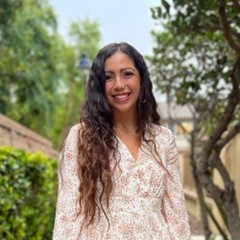A key focus of my blog is Financial Literacy/Money. Financial Literacy is critical. Understanding your money, where it goes and how to maximize can impact your overall quality of life. The following guest post is entitled, Financial Literacy: The Importance of Knowing Your Money.
* * *

Money is an important aspect of our daily lives. While it’s not the most important part of our lives, it affects everything we do. For example, we go to work every day because we need money to pay for housing, water, food, and entertainment. This is perhaps the most significant reason financial literacy is so important — money touches every area of our lives.
Why is Financial Literacy Important?

Financial literacy gives us the knowledge to manage our money; it can tell us when we’re overspending and how to save. Without it, we would be more likely to make poor financial decisions affecting our overall quality of life and health. But unfortunately, many people don’t have enough money in their retirement accounts and can’t afford basic healthcare costs.
Many people don’t have financial literacy; they don’t know how to save money or track spending, and they often find themselves in debt because they don’t realize the potential consequences. Here are a few reasons why financial literacy is important:
Education
Attending university is an expense most students aren’t ready for. They get loans without realizing how much it will cost them later in life. Unfortunately, many students drop out of college not because of their grades but because of financial pressures. Student success is defined by financials rather than actual academic achievement, and a student’s future relies on the opportunities available to them based on how much money they have.
After graduating from college, students are strapped for cash. Loan providers have a grace period to allow graduates to get a job before having to pay back their loans. However, even graduates with the highest grades still can’t find jobs, leaving many to wonder if the cost of college is even worth it anymore. While this largely depends on someone’s area of study, regardless of where they end up working, students still have massive debt they’ll have to work years to pay off.
This educational cost can put off other financial goals like saving for a house or even moving out of their parent’s homes, preventing them from achieving financial freedom until much later in life.
Help You Accomplish Goals
If you have goals, you need money to accomplish them. For example, you’ll need money to purchase healthy food if you want to lose weight. If you want to get a home loan, you need a down payment. If you want to renovate your rental property, you’ll probably need to hire a contractor to help you. Whatever your goal, you need money. Financial literacy means learning about various aspects of personal finance to help you learn how to manage your money to accomplish your goals faster.
Affects Families
Money affects a person’s life from birth until death, affecting everything in between. Families, marriages, children, and relationships are all impacted by finances. We live in a system where everything revolves around money, so while it can’t buy happiness, it’s necessary. Being wise about money can ensure stability for the future and reduce some of the stress in people’s lives.
Reduces Debt
Financial literacy educates everyone to reduce debt. Young people without proper financial education turn into irresponsible adults. These individuals don’t know anything about investing and can’t have enough money to purchase a home. Some live paycheck to paycheck even though they earn enough not to. Additionally, these individuals often take out loans for short-term goals, leaving themselves in debt they can’t pay off.
Individuals who learn about money early in life are less likely to take out unnecessary loans and more effectively manage their money to save for financial-related goals like retirement.
Prepare for Financial Crisis
Many people aren’t prepared for financial crises like job loss, emergency medical expenses, and recession. For example, many businesses went under recently because they weren’t prepared financially. Financial literacy helps individuals prepare for financial crises by helping them save money. Individuals with financial literacy have the knowledge to save more money. These individuals are more likely to have emergency savings accounts and separate bank accounts for various goals to help them prepare for a crisis.
Reduces Mistakes
Financial literacy can prevent money management mistakes. Innocent financial decisions can have long-term consequences. For example, getting a personal loan with a floating interest rate means rates can rise over time while investing in a particular type of retirement account means you can’t withdraw money even if you really need it. Financial literacy can help someone avoid making these mistakes to ensure they have a healthy financial future.
Ensure Retirement
At some point, we will all reach a point when we can no longer work, regardless of our jobs. We all look forward to retirement, but if you can’t save money now, you can’t retire. Most people need to save at least $1 million for retirement, depending on where they live. Without knowing how to invest in retirement accounts and other types of investments like gold or stocks and bonds, you simply can’t save enough for retirement. In addition, bank savings account rates don’t keep up with inflation, so if your money is sitting in a savings account at your local bank, you’ll never earn enough to retire.
Instead, you need retirement accounts that ensure your money grows over time. However, people without financial literacy don’t realize the importance of these accounts and how many different types there are.
Improving Financial Literacy
Unfortunately, our current education system doesn’t teach financial literacy, leaving more students confused than ever about managing their money. Most people learn through trial and error, but that leaves some open to the possibility of making a massive mistake. If you don’t have anyone to learn from, you can start improving your financial literacy by creating a budget and following it every month to start understanding your financial situation. First, compare your expenses to your income and determine how much you have left over for savings. Next, get your credit report and find ways to increase your score, such as paying down debt or opening a credit card.
Learning financial literacy may be something you have to do on your own, but it’s well worth the effort to prevent you from making a severe mistake that prevents you from reaching your goals.
Ashley Nielsen

Ashley Nielsen earned a B.S. degree in Business Administration Marketing at Point Loma Nazarene University. She is a freelance writer who loves to share knowledge about general business, marketing, lifestyle, wellness, and financial tips. During her free time, she enjoys being outside, staying active, reading a book, or diving deep into her favorite music.
